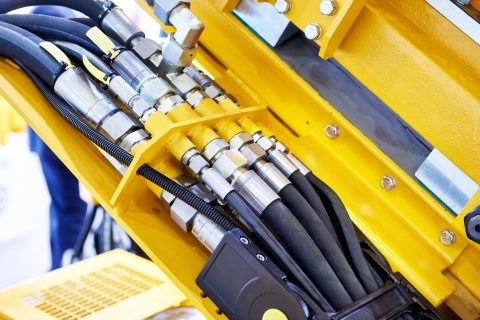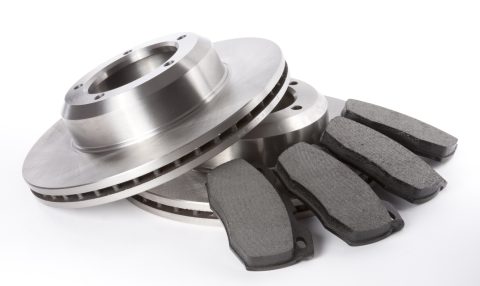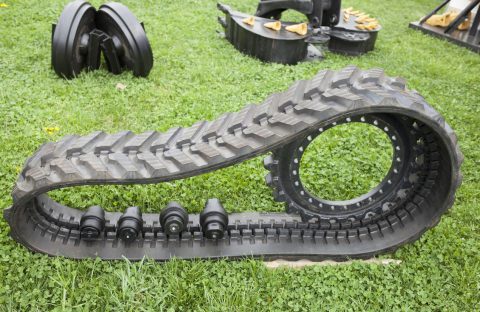Parts You Should Keep On Hand to Avoid Downtime on Heavy Equipment
Key Takeaways:
Keeping critical parts in stock is one of the simplest and most effective ways to prevent unnecessary downtime on heavy equipment. Essential components like filters, belts, hoses, fluids, and electrical parts often fail from normal wear and tear and when they do, waiting for replacements can halt operations for days. By proactively maintaining a small but strategic inventory of high-use and high-failure parts, businesses can minimize repair delays, reduce service costs, and extend the life of their machinery.
When your business relies on heavy equipment, downtime is your worst enemy. Whether you run a construction company, aggregate operation or municipal fleet, every hour your machine sits idle costs your business money. Labor stalls, project deadlines slip and productivity grinds to a halt. While some breakdowns are unavoidable, most short-term downtime can be prevented with simple preparation.
Keeping a small stock of critical heavy equipment parts on-site can make the difference between a quick fix and a multi-day delay. The goal isn’t to duplicate your dealer’s warehouse, but to have the right essential parts ready when you need them most.
Filters
Filters are among the most frequently replaced items on your heavy equipment. They protect vital systems from contaminants that cause wear and performance loss. Common filters to stock include:
- Engine oil filters – Replace these regularly to maintain oil purity and prevent damage to internal engine components
- Fuel filters – Clogged filters can restrict flow and lead to poor engine performance or stalling
- Hydraulic filters – Hydraulic systems rely on clean fluid for consistent power and control
- Air filters – A dirty air filter reduces engine efficiency and can allow debris to enter the combustion chamber
- Cabin filters – Cabin filters are important for operator comfort, especially in dusty environments
Because filters are inexpensive and small to store, they’re one of the easiest and smartest heavy equipment parts to keep on-hand in bulk. It’s a good idea to set replacement schedules and stock filters in labeled bins for each machine.
Belts, Hoses, and Clamps
 Belts and hoses are simple components, but when they fail, they can instantly shut down a machine. Cracked or frayed belts lead to overheating, loss of power, or failure of essential systems like alternators and fans. Hydraulic hoses under high pressure can burst unexpectedly, creating both safety hazards and operational delays.
Belts and hoses are simple components, but when they fail, they can instantly shut down a machine. Cracked or frayed belts lead to overheating, loss of power, or failure of essential systems like alternators and fans. Hydraulic hoses under high pressure can burst unexpectedly, creating both safety hazards and operational delays.
Keep spares of:
- V-belts and serpentine belts specific to your engines
- Hydraulic hoses and fittings in common sizes
- Hose clamps and O-rings for sealing quick repairs
Inspect these parts regularly and replace them before failure signs become serious. Even if you can’t keep every size on hand, having the most common diameters and lengths will allow for temporary fixes until OEM replacements arrive.
Fluids and Lubricants
Running out of essential fluids is one of the most preventable causes of downtime. Always maintain an adequate stock of:
- Engine oil and hydraulic fluid approved by your equipment manufacturer
- Coolant/antifreeze suitable for seasonal conditions
- Transmission and gear oils for machines with powertrain systems
- Grease cartridges for daily maintenance
Proper lubrication minimizes friction, heat and wear, extending the lifespan of critical components. In addition to keeping fluids on-hand, make sure you also have dispensing tools, funnels and spill-control supplies ready to use.
Electrical Components
Modern heavy equipment relies heavily on electronics, making electrical issues a common cause of downtime. It’s smart to stock key electrical parts such as:
- Batteries or backup jump packs
- Fuses and relays (frequent failure points)
- Bulbs and work lights for visibility and safety
- Wiring connectors and crimp terminals
Many issues that seem complex, such as starting problems or sensor failures, are often caused by something as simple as a blown fuse or weak battery. By keeping these components on hand, you can easily avoid unnecessary delays in many situations where an electrical malfunction occurs.
Wear Parts
 Every moving part wears down over time. By tracking usage hours and proactively replacing high-wear items, you can avoid catastrophic failures. Common wear parts to stock include:
Every moving part wears down over time. By tracking usage hours and proactively replacing high-wear items, you can avoid catastrophic failures. Common wear parts to stock include:
- Cutting edges and bucket teeth on loaders, dozers, and excavators
- Pins, bushings, and bearings that absorb repetitive motion
- Brake pads and rotors on mobile equipment
- Track rollers and idlers on track machines
Work with your heavy equipment dealer to identify expected wear intervals for each model in your fleet. This will allow you to create wear kits containing the exact parts needed for scheduled overhauls.
Seals, Gaskets, and Fasteners
A missing gasket or stripped bolt can bring even a simple repair to a standstill. Keep an organized assortment of:
- Hydraulic and engine seals
- Gasket material sheets for custom cuts in the field
- Bolts, nuts, and washers in common grades and sizes
Store them in clearly labeled bins or drawers, and restock them routinely. This helps ensure that even quick field fixes can be done safely and correctly.
Sensors and Common Electronics
As heavy equipment technology evolves, sensors and modules are becoming increasingly responsible for system monitoring and machine performance. A faulty sensor can trigger false alarms or limp mode, forcing a machine offline unnecessarily. To address this issue as quickly as possible, make sure to stock:
- Pressure and temperature sensors
- Backup sensors for critical systems (DEF, DPF or hydraulic pressure)
- Diagnostic tools compatible with your machine’s onboard systems
Having a basic diagnostic reader can also help you identify problems quickly, even before calling your service technician.
Tires and Tracks
 Tires and tracks endure the most abuse in heavy equipment operations. Keeping at least one spare tire or replacement track section for your most-used machines can significantly reduce downtime.
Tires and tracks endure the most abuse in heavy equipment operations. Keeping at least one spare tire or replacement track section for your most-used machines can significantly reduce downtime.
Inspect your tires regularly for cuts, punctures and uneven wear. Consider keeping spares if your operation runs remote or extended hours. If keeping full replacement sets of rubber tracks isn’t feasible, stock repair kits and spare links. Maintaining correct pressure and tension, along with prompt replacement of damaged components, helps prevent costly failures and uneven machine operation.
Building a Smart Heavy Equipment Parts Inventory
A heavy equipment parts inventory doesn’t have to be large to be effective. The goal is to balance essential needs, convenience and cost. The following best practices will ensure you have what you need when you need it:
- Track usage and failure rates – Use maintenance logs or software to identify which parts are replaced most often
- Organize by equipment – Create labeled bins or shelves by machine model for easy access
- Set minimum stock levels – When you use the last item, reorder immediately
- Store properly – Keep parts clean, dry and stored within recommended temperature ranges
- Review quarterly – Update inventory based on seasonal needs and changing fleet composition
If your operation has multiple machines of the same model, consider ordering filters, fluids, and other shared components in bulk to save money and space.
McClung-Logan Can Provide the Heavy Equipment Parts Support You Need
Keeping parts on hand is critical to minimizing downtime, and partnering with your heavy equipment dealer can make this process seamless. At McClung-Logan, we have you covered. We’ve been the leading heavy equipment dealer in the Mid-Atlantic region since 1939. Our team provides 24/7 support to ensure you receive the heavy equipment parts you need as quickly as possible. Our technicians are available around the clock to help you minimize downtime and keep your machines running at maximum efficiency.
Our trained team of professionals have extensive experience working with the parts necessary to keep your heavy equipment running properly, and we’ll provide the expert recommendations you need to get your machines back up and running as quickly as possible. With branches conveniently located throughout the Mid-Atlantic region, we’re able to keep our parts departments fully stocked. We’ll always have access to additional stock, even if you need parts that are in high demand.
With our Simply Done Right Service™ Pledge, you can count on our team going the extra mile to make your business more profitable. You can always count on:
- 24/7 assistance
- A manufacturer-trained service team with the expertise necessary to keep your equipment in top shape
- Extensive parts inventory on hand that ensures you receive the parts you need quickly
- Loaner equipment whenever possible to minimize your downtime while your equipment is being repaired
Contact one of our branch locations to speak with a sales representative. McClung-Logan is a full-service heavy equipment dealer serving the Mid-Atlantic Region.
